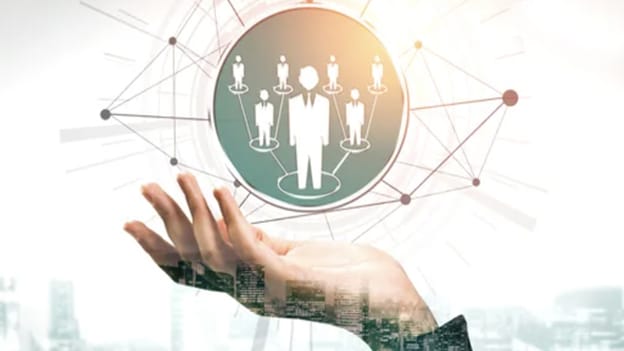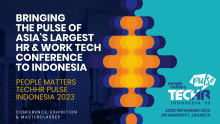How the role of HR is evolving through the pandemic

Most HR professionals would agree that this crisis has been an eye-opener for more than one reason. While employees lay their trust in us to help them out, we also do the same.
READ the June 2021 issue of our magazine: COVID-19 Rages On: Are You Ready?
As Betty Bender aptly said, “When people go to work, they shouldn't have to leave their hearts at home.” This can very well be applied to the present state of things. As India grapples with the deadly second wave of COVID-19, the home, office, and heart have been having a tough time staying out of each other. This crisis has brought human resource (HR) professionals across the country together to not just plan, but implement employee welfare activities, to an extent that has never been done before.
While hiring and employee engagement would sum up the key roles of most HR professionals, it was not until now that we weighed employee experience over everything else. As per the recently conducted Close The Employee Experience Gap report 2021, around 70 percent agree that employee experience ranks “very to most important” among HR strategies for organizations today. And with this crisis striking so close to home, we realized that it was not just the public healthcare system that needed an amendment, it was now time to put the “human” back in human resources.
Here’s how the role of human resource professionals is evolving through the pandemic.
Shifting to a need-driven people-centric approach
We have all learned our own set of lessons through this pandemic. One of the most important being that it has brought a paradigm shift in thinking in terms of engaging employees. There has been a radical shift from “one size fits all” to people-centric policies and adopting a need-driven approach (including setting up a COVID-19 help desk, COVID-19 emergency back-up care benefit, focusing on mental well-being, adding health insurance for employees and their families, etc).
Many of us are crowdsourcing verified leads for COVID resources in addition to parallelly running our respective war rooms to assist employees on a real-time basis. What’s most important to note is that these policies and initiatives will change as needs change, and we need to be prompt in introducing them.
MORE FOR YOU...
- Cisco’s Fran Katsoudas on seismic shifts in the world of work
- Grant Thornton Intl's Kim Schmidt on 'leadership'
- Rob Rosenberg on evolving EX and organizational culture
Quicker approval of updates to people policies
It was mid-February when the second wave hit us, and it took just a few weeks for things to get out of hand and approach the peak. By the time we were trying to ramp up our employee insurance policy to cover COVID-related hospitalization, we found ourselves looking for insurance companies that would also cover home treatments, due to the severe shortage of hospital beds and the danger caused by the rapid spread of the virus while waiting in hospitals. In a normal scenario, employee policies of this nature need anywhere from three to six months to get approved. We worked to apprise the top management of the situation and the need to immediately implement these policies. It took us three days to get these approved and implemented. We were not the only company that moved quickly, many other organizations were able to implement COVID-19 support initiatives and policies quickly, rising to the challenge of the moment.
Professional and personal lines have blurred
It is heartening to see employees looking up to the human resource department to help them through the crisis; it just shows that they trust we can play the part. A typical day for an HR professional today would include inducting new joinees, planning the internal newsletter, crowdsourcing for oxygen cylinders and hospital beds, planning a mental health webinar, sourcing vaccines for employees' parents, screening candidates, etc. Employees expect the HR team to support them through this by quickly adapting to organizational policies and we do that by personally addressing every concern that comes our way. For the first time ever, the boundaries of professional and personal issues have fizzled out, and our roles have become truly multi-dimensional.
Enabling remote working through trust
Most HR professionals would agree that this crisis has been an eye-opener for more than one reason. While employees lay their trust in us to help them out, we also do the same. Back in the day, most employers would measure employee efficiency based on the hours they put in. In pre-COVID times, a ‘Work From Home’ request was almost equivalent to taking leave, as we worked from the ‘so-called’ comfort of our homes without being monitored. With remote working being the new normal and employees across the world working from home, “trust” becomes a crucial value for any organization. It also reinforces that a diligent employee can be as productive at home/ a coffee shop/the beach/a hospital as they can be in the office. Hence, it is important to be an employer of choice that provides an open, collaborative, and fulfilling work culture and experience where employees go out of their way to support the organization’s growth and work as a team.
Effective internal communication is now more key than ever
The current resurgence of the COVID-19 outbreak is worrying; supporting our people and their families has never been more vital for HR teams. In addition to the relief benefits the company is extending to employees, we, as HR professionals, are making sure we personally address every concern that comes our way. This helps reassure our people that they are being taken care of, at a time when they need us the most. We have been effectively using internal communication channels (emails, frequent Slack messaging, weekly leadership interviews, weekly employee feedback surveys, monthly all-hands meetings, etc.). All this, while trying to safeguard the mental health of each employee, keeping them constantly motivated with positive organization-specific news, yoga/mental well-being sessions/stand-up acts, as well as the introduction of new benefits like learning and development allowances, volunteering leave, etc.
Leaning into values-based hiring
While tackling the ongoing crisis, it is equally important for us to continue sourcing and hiring the most promising talent for our organizations. With the need for physical presence getting less important by the day; human resource professionals are also working on identifying roles that can be fully remote; which allows us to tap niche talent from across geographies. This has led to us shifting our focus from selecting manageable high-performing candidates in the past to self-managed, high integrity ones, now. While hiring someone in a managerial role, we would previously look for the “command and control” types. We now look for managers who are innovators, have a goal-based approach, and believe in coaching their teams with empathy. It has become imperative to look for candidates that not just resonate with the values of the organization, but those who would constantly work towards upholding them.
This crisis has mobilized human resource professionals to demand sweeping changes to ensure we all come out of this together and to rekindle those values that make us humans. The pandemic has triggered our evolution into becoming “People Partners” and put our core human capabilities to use in order to stand in solidarity with our people, who we otherwise call "employees".
From this point on, we, as a fraternity, ensure that the phrase, “trust this finds you well” is not just limited to emails but becomes a way of life. It has taken an acute crisis for us to live up to the “human” in our titles, and I’m looking forward to the day when our people bring their most happy and true selves back to work.
















